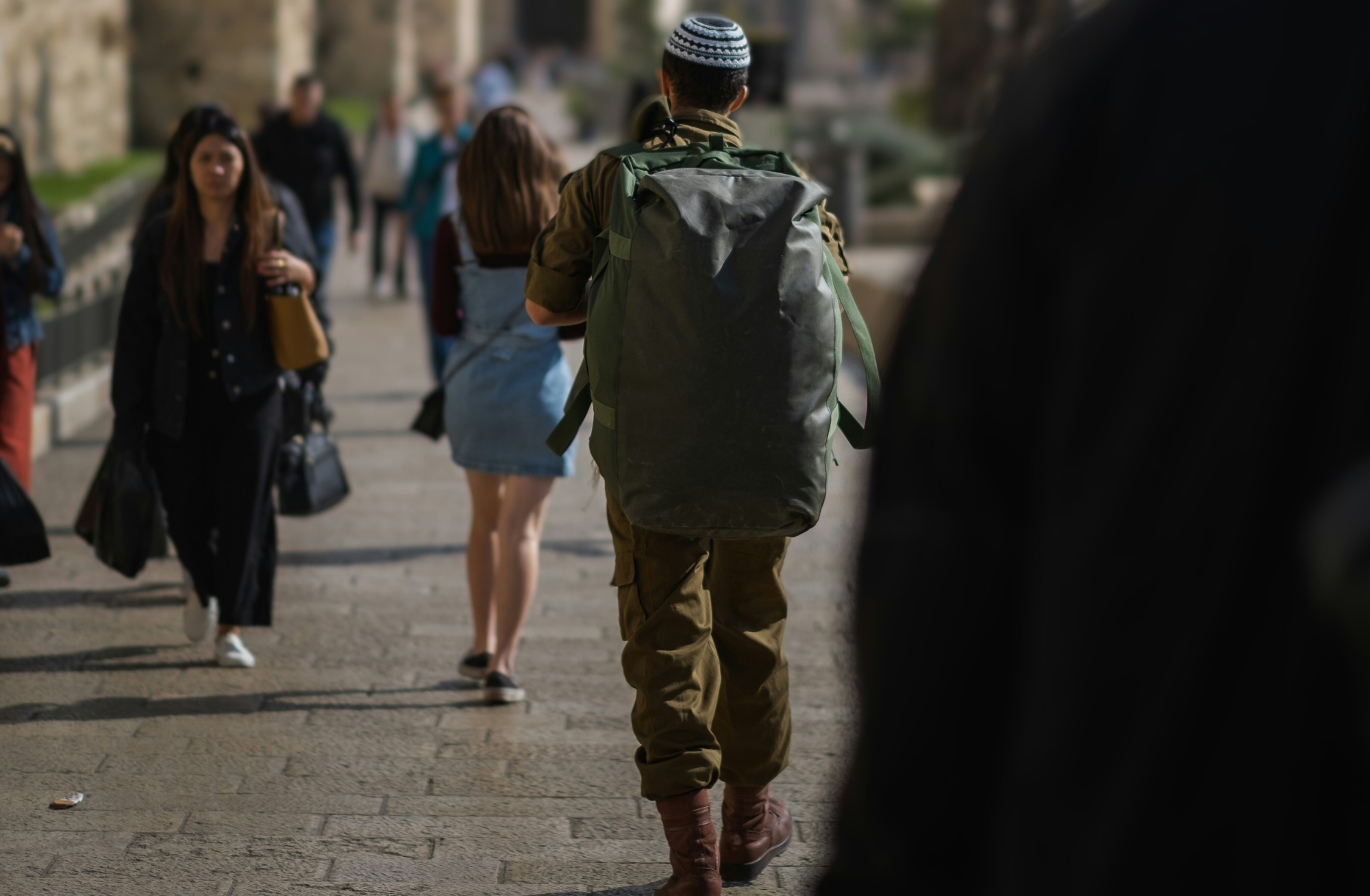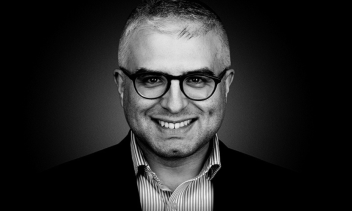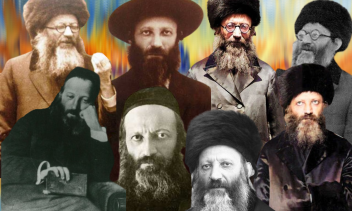Three years ago, eight-in-ten U.S. Jews said “caring about Israel” was an important or essential part of their Judaism. Nearly six in ten felt an emotional attachment to Israel, and the same figure follows news about Israel “at least somewhat closely.”
All this is to say that Israel is important to Jews. (Shocker, I know.) The question becomes: To what extent?
We invited our 18Forty community to weigh in on several prompts—whether Israel is important to their Judaism, why they do (or do not) live in Israel, and what Jews should consider more when thinking about it. Two primary themes emerged, from our gleanings.
The first is on the religious and Jewish identity of Israel—hopes, dreams, and nightmares. The second is on living in the land—the meaning, challenges, and opportunity. Now, we share their words.
On the Jewish State: Hopes, Dreams, and Nightmares
‘A Religious Imperative’
“I believe that building a Jewish state is a fundamental responsibility of all Jews and a religious imperative. Those who are in chutz la-aretz [outside the land] are in galut. While we still do not have a complete geulah, it is a process not an event and there is the opportunity to work towards it here rather than being a spectator, taking no part in the ultimate communal endeavor. People who support Israel financially but refuse to make aliyah are like the shul donors who won’t give their time for a project that needs them but put 50 bucks in the pushke. And for what reason? 90% of the time it’s for gashmius!”
— Micah Levy, Yad Binyamin, Israel
(Moved to Israel)
A Dangerous Road for Religious Zionism
“Although I am religious, and a Zionist, I do not identify with the ‘Religious Zionism’ political movement. I am very concerned about the imposition of halakha on the majority of the population who are uninterested, I am concerned about the prioritization of specific parcels of land over the assessment of the security forces, and I am concerned about the violence (and racism) that seems to arise in Religious Zionist discourse (typified in Huwara, but exists in less fully formed ways as well). Seeing people sing the song ‘Zochreini Na’ and changing the word ‘Pelishtim’ to ‘Palestinim’ at a Yom Yerushalayim flag dance was disturbing.
“Nevertheless, I do care about the state—and see deep religious significance to the fact that Jews finally have sovereignty in their land, and can take part in kibbutz galuyot. The fact that we can better understand the Torah and its laws by understanding Israel is very special.”
— A.F., USA
(Does not want to move to Israel)
‘No More Excuses Not to Come’
“Israel is the only place for Jew to live. Look at your Birkat Ha-Mazon (Nodeh lecha…). Please look at ‘va-techezena einenu bi-shuvcha le-tzion’—this is where a Jew must live. I am not a fanatic but definitely a realist. Look around at rising antisemitism (I hate it if people came because they are pushed out—I want people to come because it is a mitzvah!)…
“Living here and making aliyah (40 years, baruch Hashem) is the most important thing I ever did. I raised six children and many grandchildren and now a great grand child, baruch Hashem and bli ayin horah. We came because that is what a Jew is supposed to do and that this is where we are supposed to live.
“I understand there are reasons people cannot come—parents, medical issues, kiruv, etc.I get it. But most should be here. I am 70-years-old and made aliyah with my husband Moshe almost 40 years ago. Israel is a modern country. You will have everything you need and want. No more excuses not to come.”
— Yehudit Spero, Efrat, Israel
(Moved to Israel)
Concerns of Jewish Religious Fundamentalism
“As someone who doesn’t live in Israel and does not have any immediate plans to do so, I do not have a great answer as to what the greater Jewish community does not consider enough when thinking about Israel. I will say something that I only began to think about recently, though, is that I am concerned about Jewish religious fundamentalism from certain groups. As someone who lives in America, I cannot comment on how prevalent these attitudes are in your typical observant Jewish community in Israel, but it is something that concerns me. “
— Ezra Cooper, Washington Heights
(Wants to move to Israel)
Something Special
“I do want to move to Israel, (and bli neder plan to return in 3-6 years). Why? For so many reasons, including wanting to live in my home, to live in a place in which ruach ha-kodesh is palpable, to live in a place that is relevant to the world (this is both a blessing and a curse), to live in a society where cowardice and being a bystander is not the default, where honesty in everyday encounters is the default, where people are generally way less bothered by trivialities… I could go on.”
— Natan Zeligson, Toronto, CA
(Moved from Israel)
On Living in the Land: New Meaning and Opportunity
‘Never Been Easier’
“I live in Israel because it’s the place we’re meant to be, and it’s never been easier. That doesn’t mean there aren’t difficulties but looking back even it’s easy to see that it’s so much easier than previous generations had it. It’s also unbelievable that the place we’ve been davening to return to for thousands of years is in our reach and people aren’t flocking back. I’ve always loved Tanach and history and its so clear that it is more praiseworthy to live here than in chutz la-aretz, plus everywhere we’ve been in galus ends at some point, I’d rather have come to Israel on my own terms and not because I’m running away.”
— CB Berkovits, Bet Shemesh
(Moved to Israel)
Destruction ‘Can Happen Again’
“I have a complicated feeling. I identify more with the people of Israel rather than the land itself or ‘kedusha’. My favorite part of going to Israel is to go to malls/shuks and marvel at all the types of Israelis (especially places like Machane Yehuda).
“That being said, I don’t think that the State of Israel is a de facto religious statement or fact which cannot be reversed. I think about how Hashem exiled us from a built up country twice in history. It can happen again if we don’t take the lessons of the Torah seriously.”
— Naftali Pfeiffer, West Hempstead, NY
(Does not want to move to Israel)
‘Not Only a Faith Community’
“Israel is an important part of my Judaism—it is the part of our religion which reminds us that we are not only a faith community but also a people who are on a fundamental level ultimately foreigners everywhere we go. It is the part of our faith that makes our faith something which cannot be wholly assimilated into another countries national identity—America will never be a Jewish country because Jews have a different country. America can be a Christian or atheist country because those groups don’t have a specific country.
“G.K. Chesterton, a famous British writer of the early 1900s, said of the British Jews: ‘Jews have died for England and will probably yet die for England. But they will not die with England. Should England die, they will be sad but very soon they will just get on a boat and go elsewhere.’ Similarly, Jewish life in America will only be worth it so long as America provides a substantially higher quality and ease of life than Israel. But soon enough it may not and America may face challenges like those in Europe that have made Jewish people really question the long term sustainability of living in a country which we are ultimately foreigners in.”
— Noam, New York
(Wants to move to Israel)
‘Living at Home’
“Israel is our Homeland. Study Jewish history, every single place Jews have lived have never ended well. Jews are simply meant to be in Israel and thats clearly where the future of the Jewish people is heading. The best and most meaningful way to live a Jewish life is in Israel. It absolutely changes you and your mindset. Judaism isn’t something you just do but it’s a way of life in every aspect since you are living at home.”
— Josh Kanter, Efrat, Israel
(Moved to Israel)
‘Outside of Israel, You Are Always a Guest’
“As a Jew outside of Israel you are always a guest. Sometimes a welcome guest, sometimes an unwelcome guest. Sometimes you are a conditional guest where you are only welcome if you play along with the prevailing culture in a way that ends up in assimilation after a couple of generations. And sometimes people think they are welcome guests but find out with a shock they are not. Israel is the only place in the world for every Jew where they are not a guest but it is their home. In the same way that the Torah is the morasha of every Jew, Eretz Yisroel is also.”
— Micha Levy, Yad Binyamin, Israel
(Moved to Israel)







